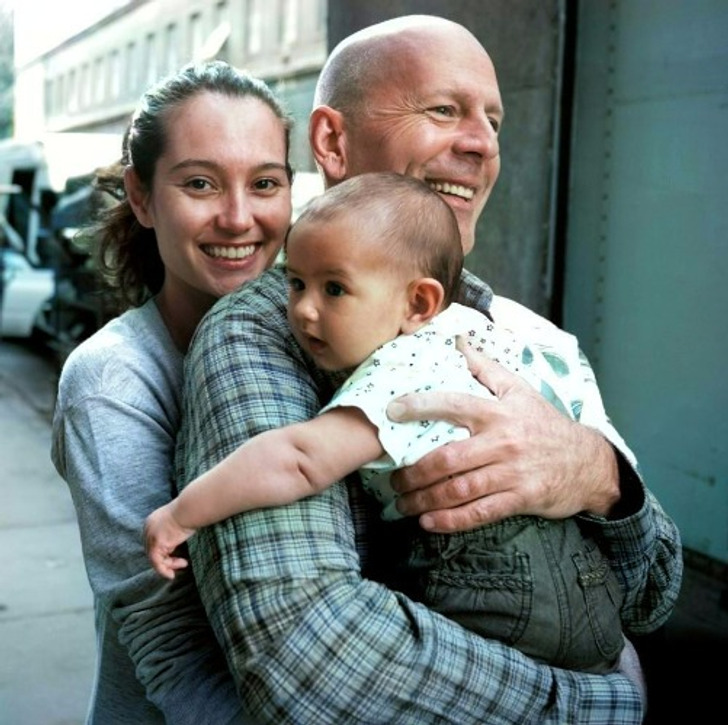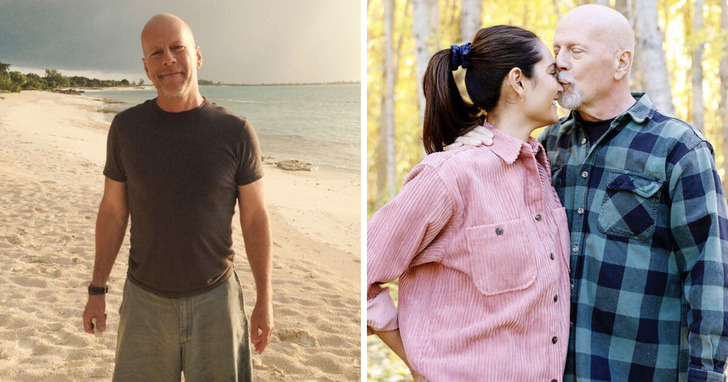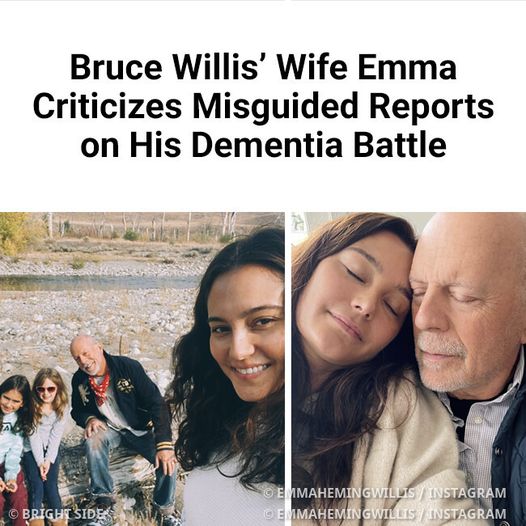Bruce Willis and Emma Heming crossed paths for the first time in 2007 during their shared workouts at a mutual trainer’s gym. Two years later, they exchanged vows and now share the joys of parenting two lovely daughters. However, news broke in 2023 revealing Willis’s battle with dementia, prompting their blended family to rally around him in solidarity.
In the face of this challenging journey, Heming remains steadfastly devoted to her husband, offering unwavering support as they navigate the complexities of dementia together.
Emma Heming Willis does everything she can to learn more about the FTD condition.
With the help of dementia specialists, Heming put together a dementia care toolbox. While the condition affects everyone differently, the box is designed to give sufferers hope for the future, inspire them with real-life experiences, and offer ideas to improve their life’s quality.
Dementia tool kits often contain 5 themes of evidence-based resources:
- Stay safe and well: For instance, a sign in the kitchen can remind you to wash your hands, or a sign at the door tells you not to forget your keys, etc.
- Stay connected: Make a list of people to call with a set schedule for each by setting speed-dial numbers on your phone or trying different ways of staying in touch with loved ones, be it through letters or cards, Zoom calls, FaceTime, etc.
- Keep a sense of purpose: For example, you can put together a to-do list in the evening that contains a plan for the next day.
- Stay active: Get plenty of daylight and fresh air, dance to your favorite songs, and have a balance of stimulating and relaxing activities.
- Stay positive: Focus on the things you can do, and if you’re feeling anxious, do some breathing exercises or listen to relaxing music. If days get hard, talk it out with a friend or loved one.

Emma Heming Willis begs photographers to leave Bruce Willis alone while he’s out and about.

After the news of his FTD (frontotemporal dementia) diagnosis became public, and Bruce Willis hung out with a few friends for a coffee, paparazzi tried to get closer to the actor to grab a couple of good shots of him and ask him questions.
Heming called them out, sharing that people still need to be educated about how to behave around people suffering from dementia. She shared, «To the photographers who are trying to get exclusives of my husband, just keep your space. I know this is your job but maybe keep your space. Please don’t be yelling at my husband, ask him how he’s doing, the yippee ki-yay. Just don’t do it. Give him space, and allow our family to get from point A to point B safely.»

Heming Willis confronts misinformation on husband’s dementia battle.

Bruce Willis’ spouse, Emma Heming Willis, has strongly criticized an online report suggesting that her husband’s life lacks joy.
In a video shared on her Instagram profile, Emma Heming Willis expressed frustration over being «clickbaited» by a headline related to her family.
Expressing her dismay, Heming Willis conveyed that she felt «triggered» upon encountering the story on Sunday morning. Although she refrained from specifying the publication responsible for the report, she emphasized that the headline was «completely untrue.»

Contrary to the misleading headline, Heming Willis asserted that their reality was quite the opposite, filled with love, connection, and happiness despite the presence of grief and sadness. She assured, «There is so much beauty and soulfulness in this story.»
Emma added: «I need society and whoever’s writing these stupid headlines to stop scaring people, stop scaring people to think that once they get a diagnosis of some kind of neurocognitive disease that that’s it, it’s over, let’s pack it up, nothing else to see here, we’re done.»

In her post’s caption, Bruce Willis’ wife emphasized the importance of the media being careful in how they report on dementia. By urging for greater mindfulness in media coverage, Emma Heming Willis has not only defended her husband’s dignity but also highlighted the importance of fostering empathy and awareness in public discourse surrounding neurocognitive diseases.
